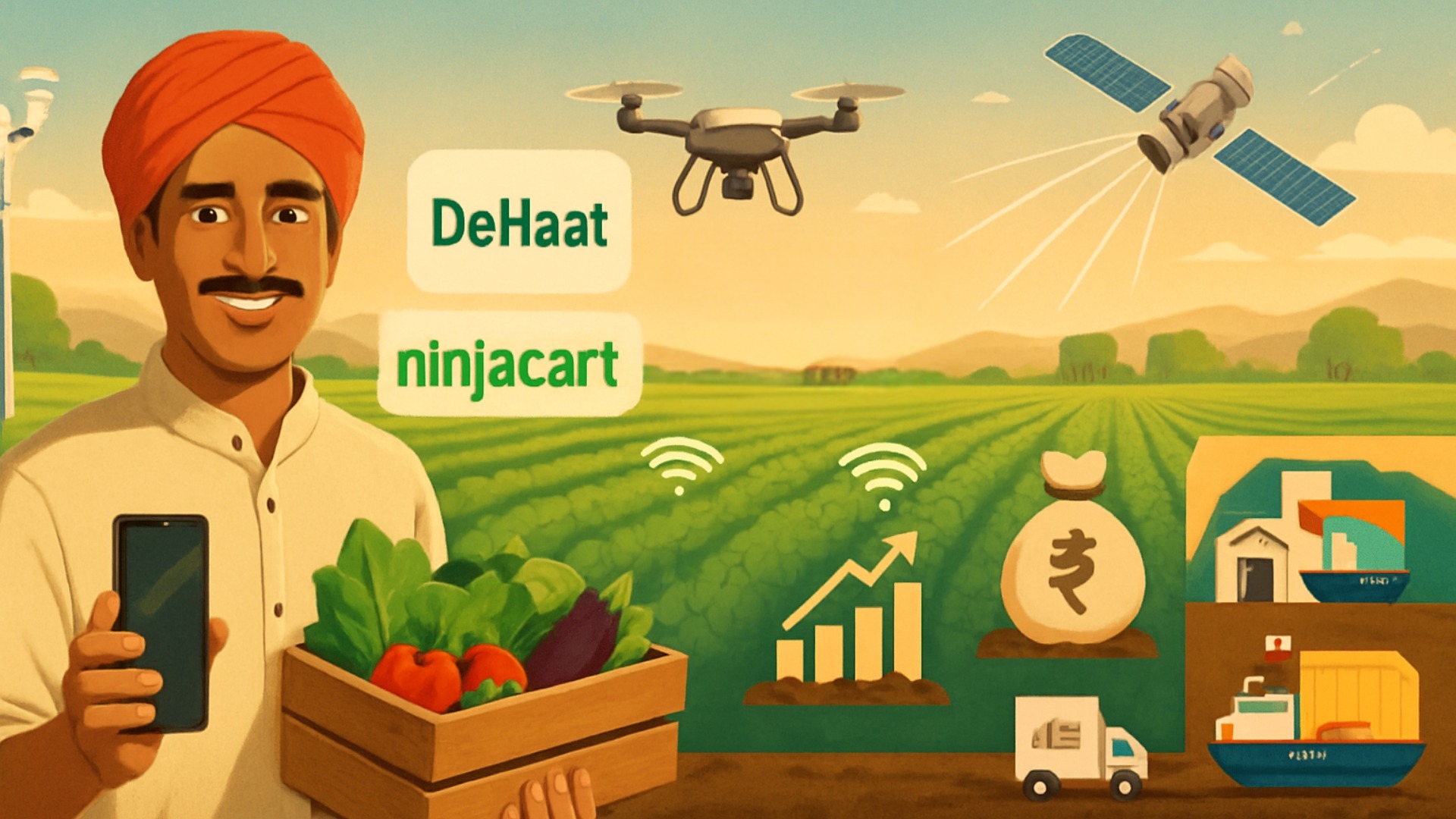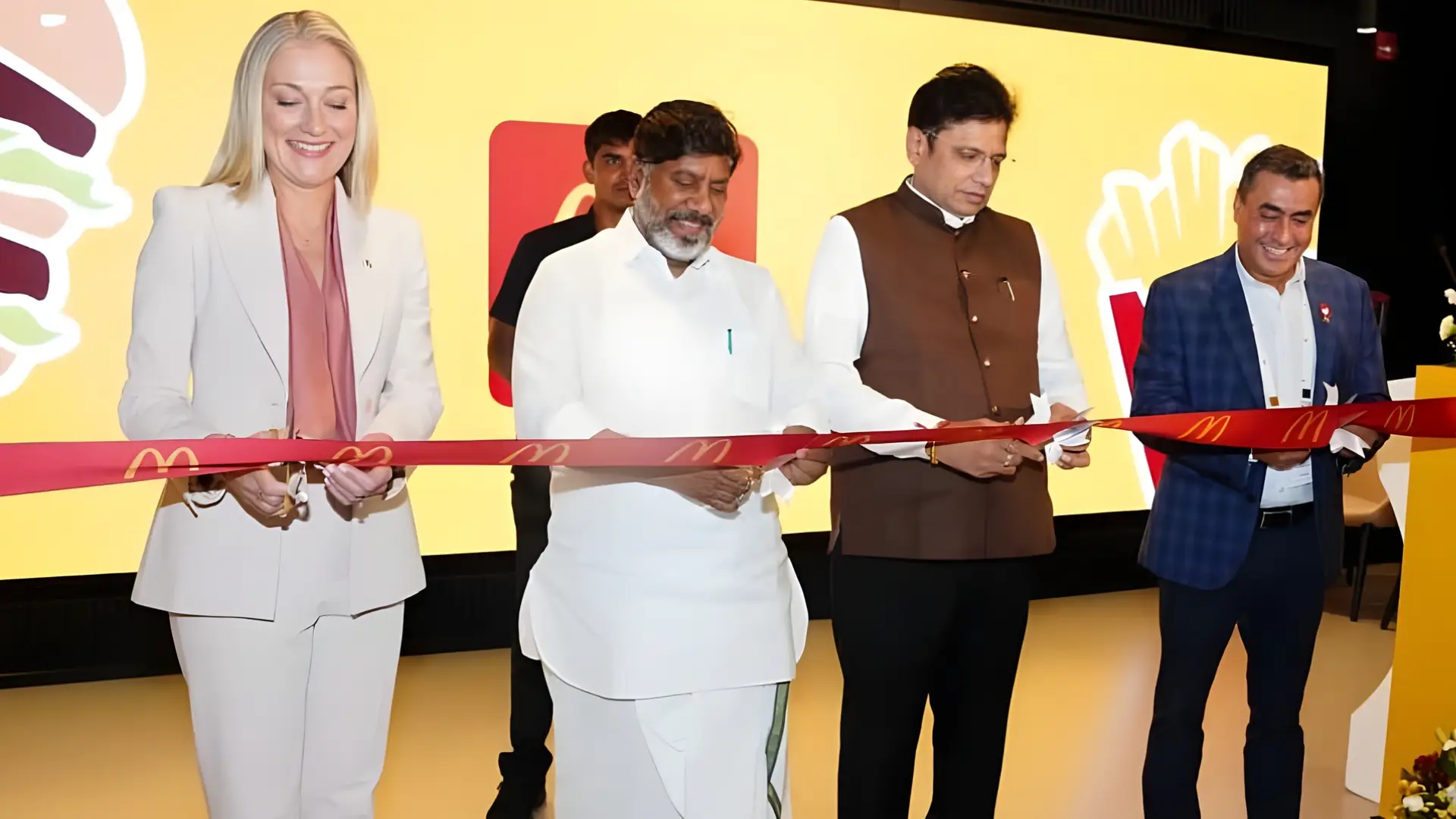“The farmer is the backbone of our country.” We hear this a lot. It’s probably the most common line we use when we talk about India. And honestly, it’s true.
In the last few years, we’ve seen hundreds of startups come up in the Agri space, solving problems in everything from supply chain and Agri-input delivery to precision farming, soil testing, and helping farmers sell their produce better. These agritech startups are trying to fix real issues on the ground and improve farmers’ incomes.
We all know there’s a huge opportunity here. Startups can make good money while also doing something meaningful. But it hasn’t really taken off the way we expected. Even though so many startups were born to solve different Agri problems, the Agri-tech industry hasn’t gotten the attention it truly deserves, especially when you compare it to sectors like fintech, edtech, or consumer tech.
These are not just baseless statements; stats say it all. According to the report released by Kredible. Since January 2020, Indian startups have raised over $107 billion in venture capital. But agritech startups received only around 2% of that total funding. That’s a huge gap, especially when you compare it with high-interest sectors like fintech, SaaS, e-commerce, health tech, and edtech, which have attracted the lion’s share of capital.
Despite the potential and the growing number of agritech players, the sector still hasn’t produced a single unicorn. But surprisingly, India has over 120+ unicorns. To understand how agri-tech startups are performing, let’s look at the top three players Ninjacart, DeHaat, and WayCool.
These companies raised their last big equity funding in 2022, with valuations of:
• Ninjacart is at $815 million.
• DeHaat at $705 million
• WayCool at $700 million.
So yes, they’re getting close to unicorn status, but they’re not there yet. But if we look at their revenue numbers, they’re already playing big.
As of FY24 (financial year 2023–24):
• Ninjacart made over ₹2,002 crore in revenue.
• DeHaat clocked around ₹2,674 crore
• Arya.ag reported about ₹339.7 crore.
• AgroStar made ₹746.88 crore.
So even though they haven’t reached unicorn valuations yet, these companies are clearly growing fast and generating massive revenues. They’re solving real problems, and their numbers are proof that agritech is quietly building something big.
There is one company, which we will discuss in more detail in this article, which is DeHaat. Let’s dive deeper.
DeHaat was founded in 2012, and it has built a robust full-stack platform that serves over 18 lakh farmers across India. The company offers everything from agri-input sales and crop advisory to market linkages and financial services, making it a true one-stop solution for farmers.
The company was founded by Shashank Kumar, Amrendra Singh, Adarsh Srivastava, and Shyam. After generating around ₹2,674 crore in revenue in FY24, DeHaat has already crossed ₹3,000 crore in FY25. But what’s even more exciting is that the company has now turned profitable.
According to recent media reports and an official company statement, DeHaat reported EBITDA-level profitability in the first quarter of FY26. While exact numbers haven’t been shared, the estimated profit for Q1 is said to be between ₹5 and ₹10 crore. This marks a major milestone not just for DeHaat, but for the entire agritech sector. It shows that profitability is possible in this space, and DeHaat is now aiming for full-year profitability going forward.
And according to co-founder and CEO Shashank Kumar, the company’s growth has been driven by a mix of high-margin private label product sales, exclusive distribution partnerships for agri-inputs, and a growing focus on exports, storage, and food processing.
In fact, in FY25 alone, DeHaat generated ₹430 crore in export revenues across 32 international markets. And the momentum continues; the company is now targeting ₹800 crore in exports for FY26, as per media reports.
Well, not just this DeHaat, even other companies, such as NinjaKart and other companies, are competing in this space. So, these startups are like torchbearers for the industry. If the trend continues in coming months, we can see a unicorn from this field. But there is another major gap we can see, which is the lack of attention from the investors.
To support this again, we have some statistics. Since 2024, over 210 VC, PE, and government-backed funds have been launched, but only 23 of them specifically focus on agri-tech, including names like Omnivore, Stride Ventures, Alteria Capital, and Northern Arc.
Funds exclusively targeting this space remain rare. One notable thing was the launch of AgriSURE, a $90 million government-backed fund aimed at supporting agritech ventures. To bridge this gap and foster early-stage innovation, the government has also introduced programs like the Innovation and Agri-Entrepreneurship Development Programme (under RKVY-RAFTAAR) and Agri Udaan, which provide funding, mentorship, and incubation to promising agri-tech startups.
These initiatives are happening, but to solve the huge problems in the agriculture space, we need even more startups and funding. If the same momentum continues from startups such as Dehaat, NinjaKart, Waycool, Agrostar, and other well-known ones, we will see a huge rise in the startup funding spree in this space.
Also Read: Fractal Launches Cogentiq, an Agentic AI Platform to drive Enterprise Performance








